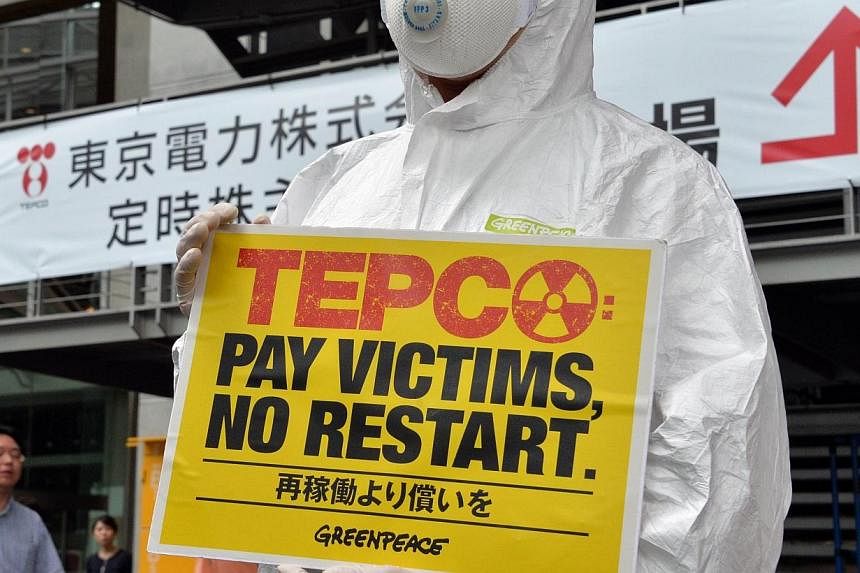|
TOKYO (AFP) - Japan's nuclear regulator said on Wednesday that two atomic reactors were safe enough to switch back on, marking a major step towards restarting atomic plants that were shuttered after the Fukushima crisis. Nuclear Regulatory Authority (NRA) officials issued a more than 400 page report on the Sendai plant in southern Japan, technically giving its operator the green light to switch on its reactors - the first since Japan ushered in tougher safety guidelines last year. Prime Minister Shinzo Abe has been trying to convince a wary public that Japan needs to return to an energy source which once supplied more than a quarter of its power, a push backed by business groups. The government and Sendai's operator, Kyushu Electric Power, have agreed to a month-long public consultation period and winning agreement from local officials before giving a final nod, making an actual restart unlikely before the autumn. "This is a very big step for the nuclear regulatory committee," NRA chairman Shunichi Tanaka told his colleagues at a meeting broadcast on the Internet. A small band of protesters at the public meeting shouted "shame on you!" with one demonstrator deriding the watchdog's officials as puppets of Japan's powerful nuclear industry. Protesters also gathered outside the Sendai plant on Wednesday, local media said, with bigger demonstrations expected later in the day. Widespread anti-nuclear sentiment is simmering in Japan more than three years after the Fukushima power plant was crippled following an earthquake and tsunami in the worst atomic disaster since Chernobyl. Japan lies in one of the world's most seismically active areas and is regularly hit by powerful earthquakes. Following the meltdown at Fukushima, the country's nuclear reactors were switched off. Two reactors were briefly restarted last year but all of Japan's nuclear plants are currently offline. Abe has seen regular protests in front of his office over plans to restart reactors deemed safe by the nuclear agency. Raw fears One local assembly has adopted a resolution for the Sendai site to be decommissioned rather than restarted, and the NRA's review comes just days after the election of an anti-nuclear politician underscored opposition to Tokyo's plans. Former parliamentarian Taizo Mikazuki, 43, squeaked out a Sunday election win to become governor of Shiga prefecture, beating a candidate backed by Abe's ruling Liberal Democratic Party. The prefecture in western Japan borders on Fukui prefecture, host to 13 idled reactors and where the battle over nuclear power could see its biggest fight. Mikazuki has demanded that the central government get his approval before any reactor restarts over the border in Fukui. Worries about whether Japan's nuclear plants could withstand another disaster came into focus at the weekend as an earthquake struck near the crippled Fukushima nuclear site. No major damage was reported, but seismologists said the quake was an aftershock of the tremor that sparked 2011's deadly tsunami, and warned of more to come. A 9.0-magnitude earthquake in March 2011 saw a monster tsunami slam into Japan's Pacific coastline, leaving about 18,000 dead or still missing. The huge waves swamped the Fukushima plant, sending reactors into meltdown and spewing radioactivity across the adjacent farming region. No one died as a direct result of the atomic accident, but experts warn that decommissioning of the plant could take decades and many evacuated residents may never be able to return to their homes in the shadow of the plant. |
Japan nuclear watchdog says two reactors safe to switch back on

Join ST's Telegram channel and get the latest breaking news delivered to you.
